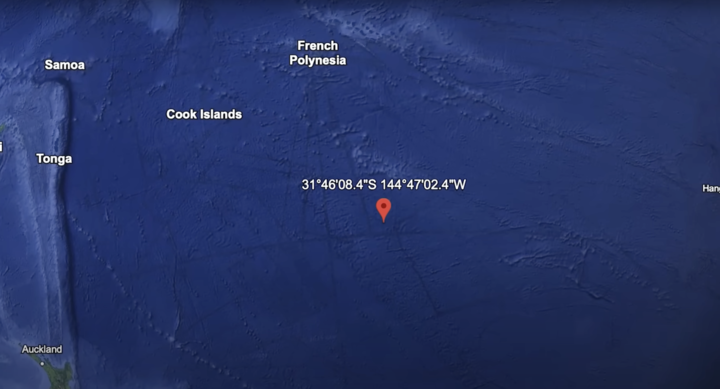Series: Dante’s Divine Comedy
Part I: Dante’s Inferno
Part II: Dante’s Purgatorio
Part III: Dante’s Paradiso
Purgatorio
The second act of The Divine Comedy begins after Dante and Virgil escape from the center of Hell and find themselves at the base of Mt. Purgatory, in the middle of an endless sea.
Similarly to Hell, this mountain has a tiered structure with seven distinct levels.
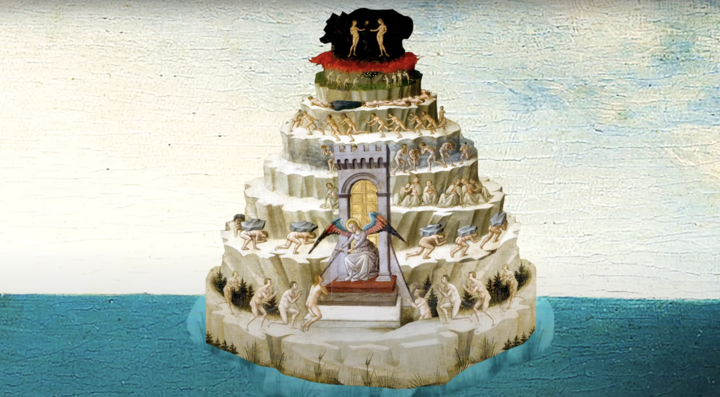
Purgatory has a different purpose than Hell. If someone is not quite bad enough for Hell, and not quite good enough for Heaven, they must be tested.
Instead of torture and punishment for it’s own sake, purgatory is about earning salvation. The souls trapped here have a chance to ascend. Each level of purgatory is designed to purge each specific sin.
Let’s take a walk up the mountain, shall we?
The Mountain
Dante tells us that Mt. Purgatory is greater than any other peak on earth, and resides somewhere in the southern hemisphere - exactly on the other side of the earth as Jerusalem, the holy city.
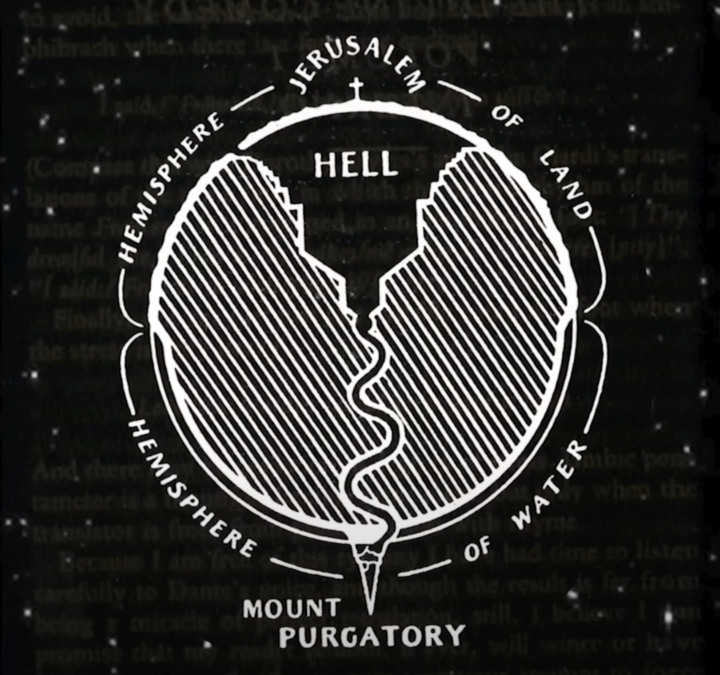
Location
It would be located exactly here, south of the islands of French Polynesia.
As of yet, no gigantic mountains have been found there. But we’ll keep an eye out.
Ante-Purgatory
Dante and Virgil are not quite within Purgatory yet. The place they have arrived to is a sort of waiting ground called Ante-Purgatory at the foot of the mountain. Dante’s beloved, Beatrice - who sent Virgil in the first place - awaits Dante at the top of the mountain.
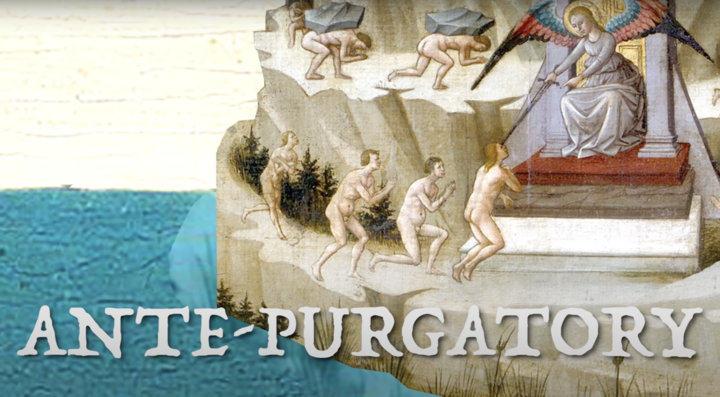
Ante-Purgatory houses the “Late Repentant” - Those that only remembered God at the point of death after a lifetime of sin.
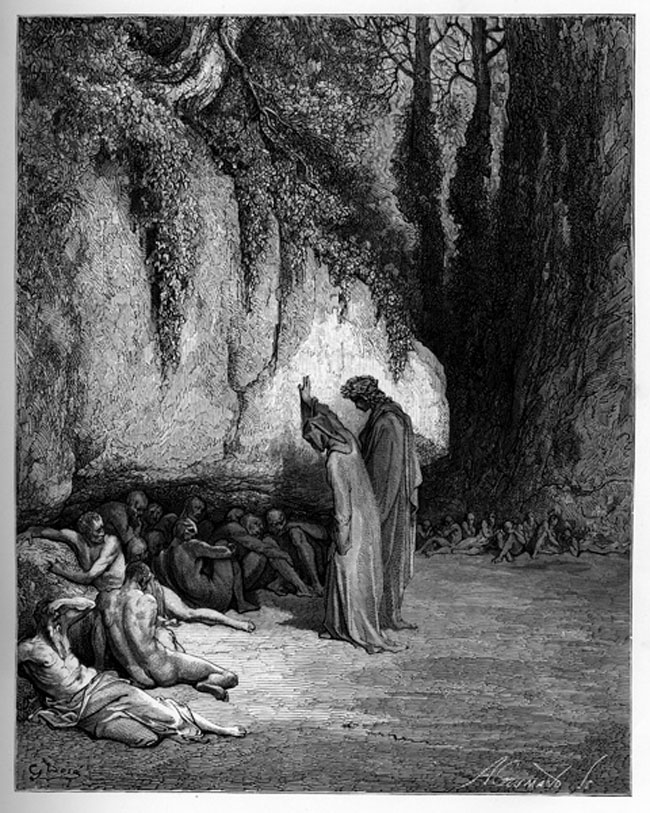
They will not be let in so easily. They must wait for years - a period equal to the length of their lives on earth.
Dante and Virgil ascend the foothills and make their way to the Gate of the Mountain. Guarding Purgatory is a fierce looking angel holding a giant sword.
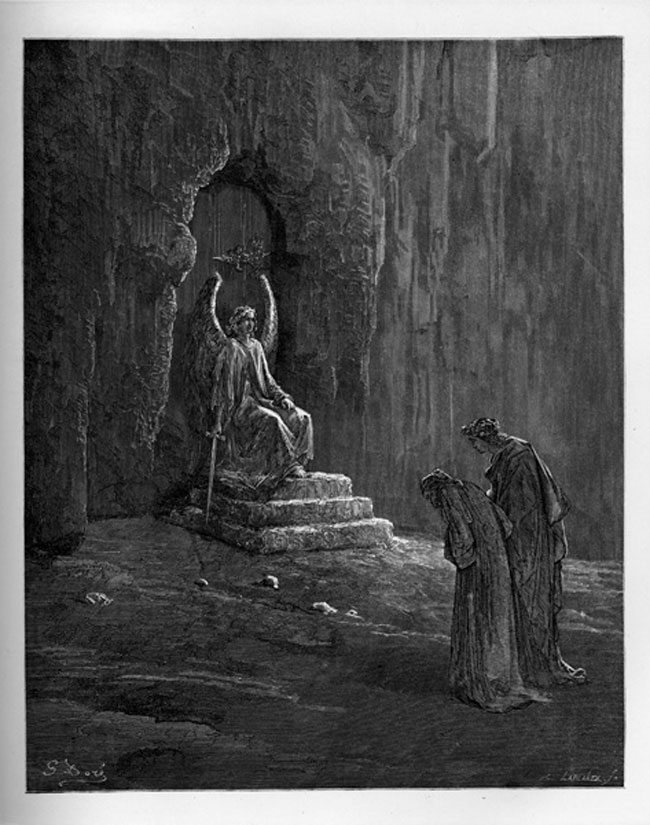
As Dante approaches, she draws her sword to his forehead, and carves the letter “P” seven times. It stands for “peccatum”, the latin word for sin.
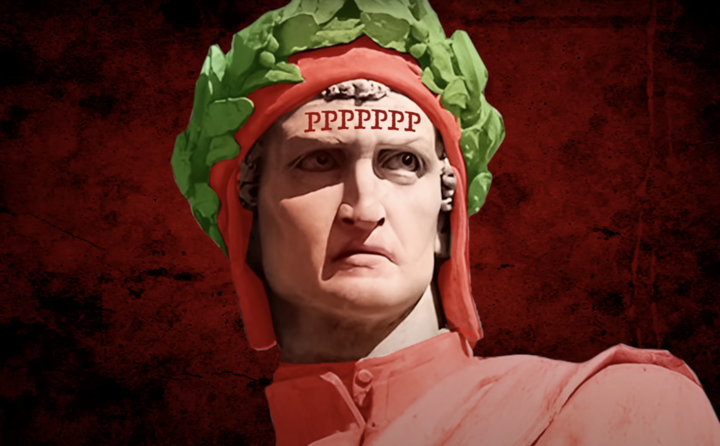
These seven marks can only be removed by successfully passing the seven trials that await them on the mountain. With that, the angel unlocks the gate and they proceed.
Deadly Sins
Of course, the number seven isn’t a coincidence here - they relate to the seven deadly sins.
Each one of the sins must be cleanse through a penance - a medieval tradition of making amends through sacrifice or punishment. Salvation was something to be earned.
1) Pride
On the first level of the mountain, all around them, people are carrying massive boulders on their backs. Beneath the crushing weight, they are all chanting in prayer.
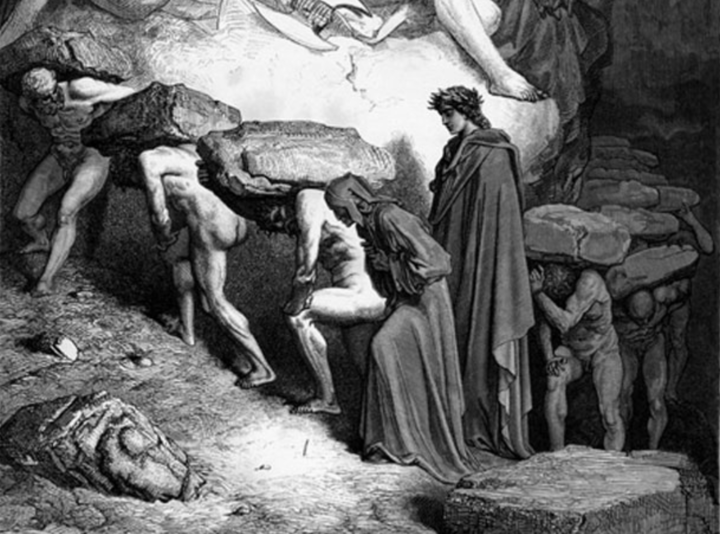
Those preoccupied with themselves and worldly achievement must now humble themselves by carrying heavy weights. All the while the sing praise to God, to remind themselves who is really in charge here.
On the mountain walls, Dante notices many statues depicting the virtue of humility, and many more showing the sin of pride. Among them is a statue of Lucifer, whose hubris lead to his downfall.
They finally reach the end, and with a brush of the guardians angel of humility’s wings - a “P” is removed and they are free to proceed.
2) Envy
On the second level, the pair is now huddled around by a mass of people. As Dante looks closer he is horrified to discover that their eyes have been sewn shut.
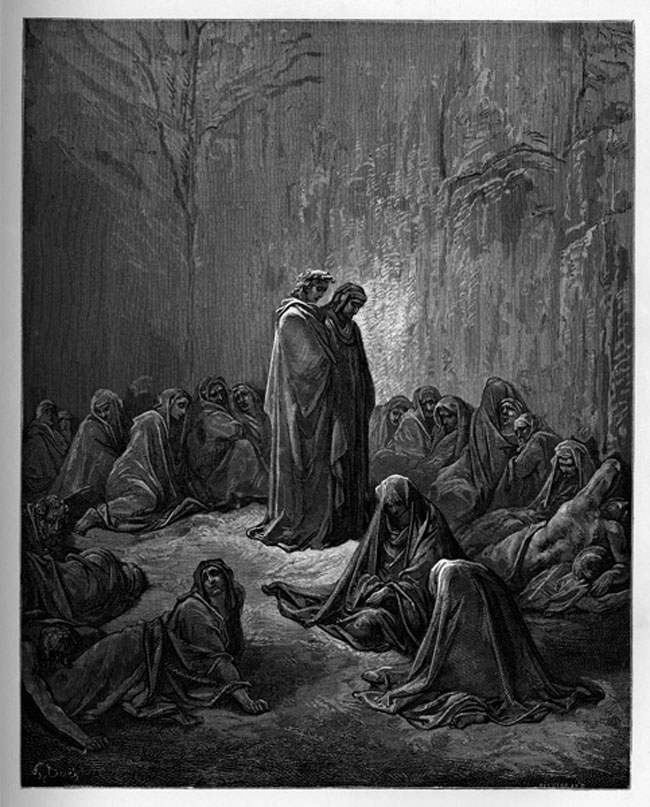
This trial is for the envious - those that coveted what others possessed. Unable to further gaze upon what they cannot have.
Among them is Sapia Salvani, who confessed to Dante that in life her envy towards her fellow townspeople ran so deep that she rejoiced when her city was destroyed and fell in battle. She since repented for her sin and is now consigned to the trial here in purgatory.
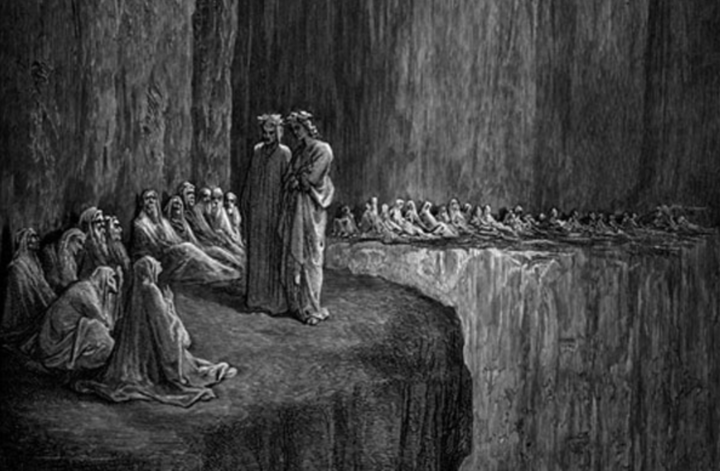
They make it to the gate and the angel of charity, where another “P” is removed, since the angel senses no jealousy in Dante.
3) Wrath
Immediately upon reaching the third terrace, They are engulfed in a thick, black smoke.
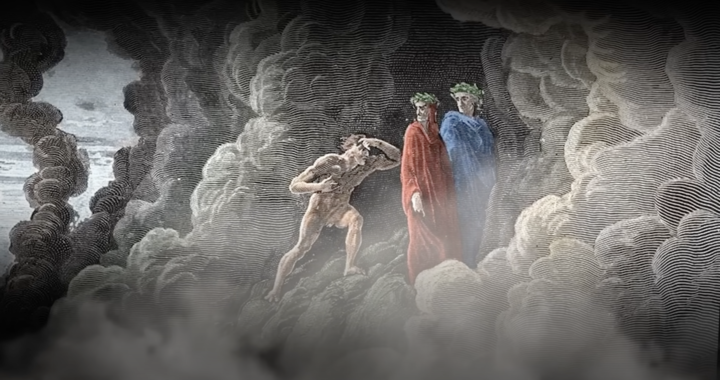
This is the trial of the wrathful, who in life were so clouded by anger, must now live in literal clouds of smoke.
Dante calls out in the dark, and hears the voice of Marco Lombardo - a thinker, who engages Dante in a brief philosophical debate:
Do we truly control our actions, or are we just products of our environment?
Lombardo believes in free will, but admits that most men live their lives only chasing pleasure, and thus require strong leaders and moral order.
Onward they go, another “P” removed by the angel of peace.
4) Sloth
On the fourth level, Dante and Virgil see people running every which way. Seemingly unable to slow down or take a break.
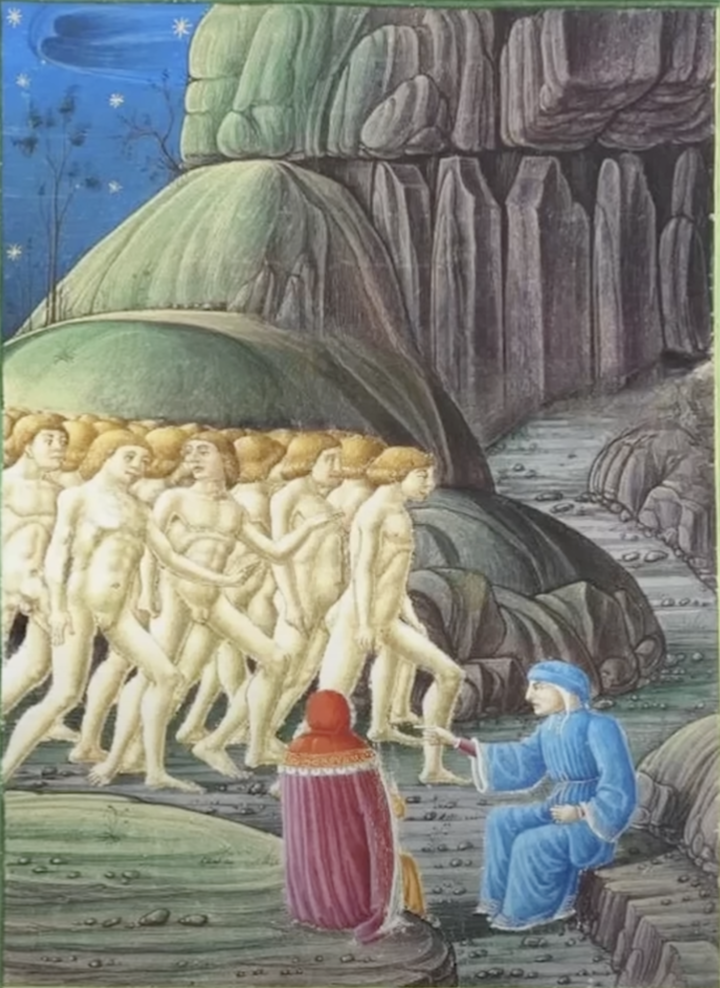
This is the trial of the Slothful - those who in life lacked commitment and allowed distractions to rule them. Now they are forced to learn the true meaning of effort. Their punishment is to live in endless motion, exhausting themselves endlessly, burning off their sin like one would burn calories.
Preoccupied with their tasks, none have the time to speak with Dante - so they press on past the angel of zeal.
5) Greed
On the fifth level, Dante sees an uncomfotable sight - bodies strewn about on the ground, eyes fixated on the ground.
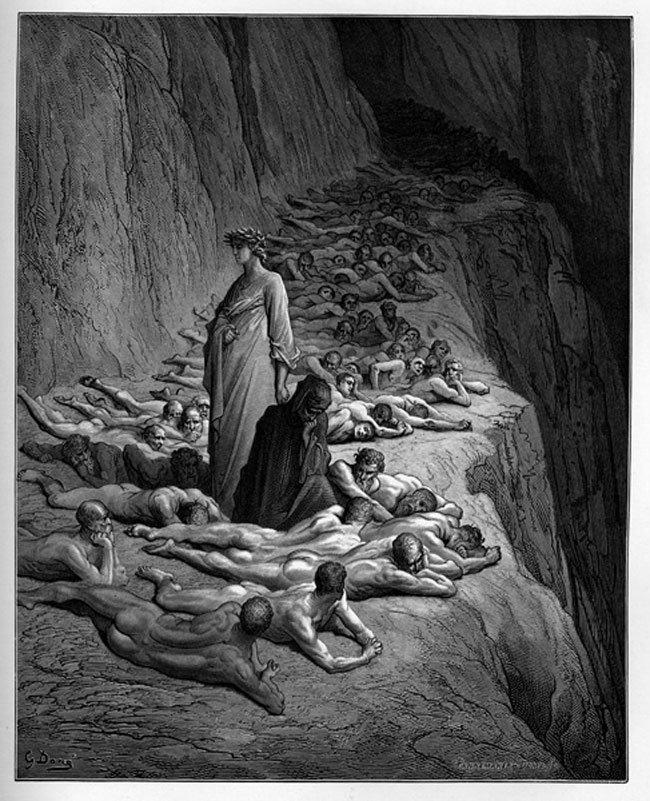
These are the Greedy - souls obsessed with wealth and power. They purge this by meditating on the futility of worldly possessions.
Here Dante meets a surprising figure - Pope Adrian V. He’s making a commentary here on the wealth accumulated by religious figures of his time.
Suddenly the ground shakes violently - Virgil explains that this happens when a soul has successfully completed their trials and is freed. The newly freed soul joins up with them now - Statius - a Roman poet from the past. After 500 years on the terrace of Envy - he has finally atoned for his sins. But before he ascends, he decides to join Dante and Virgil on their journey.
Passing the angel of generosity, only two trials remain.
6) Gluttony
The three poets now arrive at the sixth level and see trees with bright fruits. Around the base of the trees, starved souls gather - their hollow eyes fixed on the fruit above.
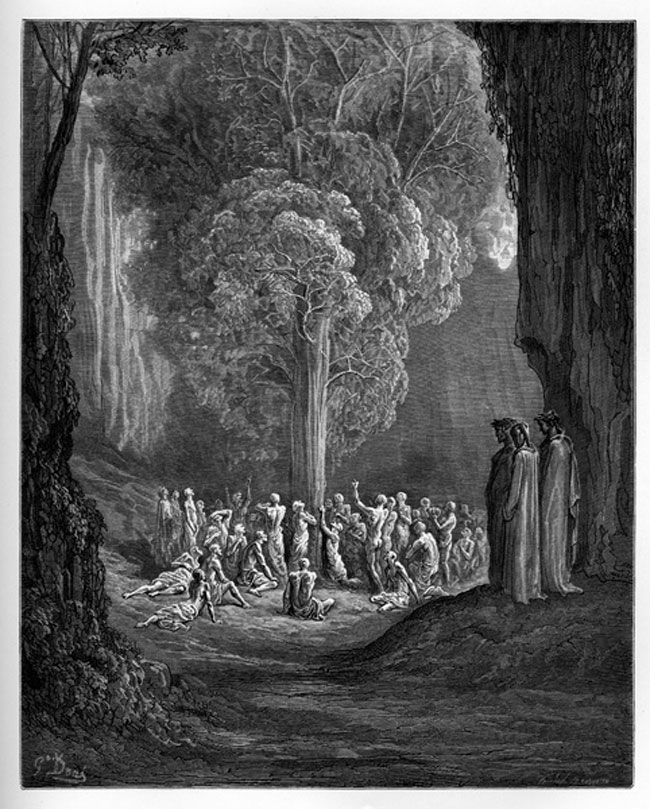
For those that overindulged, their fate is to have food hung right above them, never being able to take a bite.
Here Dante meets an old friend from Florence, Forese Donati, who is clearly having a pretty bad hangover from his drinking in life.
Nonetheless, Dante moves to the angel of temperance, who removes the sixth “P”.
7) Lust
At the seventh and final terrace was the greatest challenge of them all. Before them rose a roaring wall of flames.
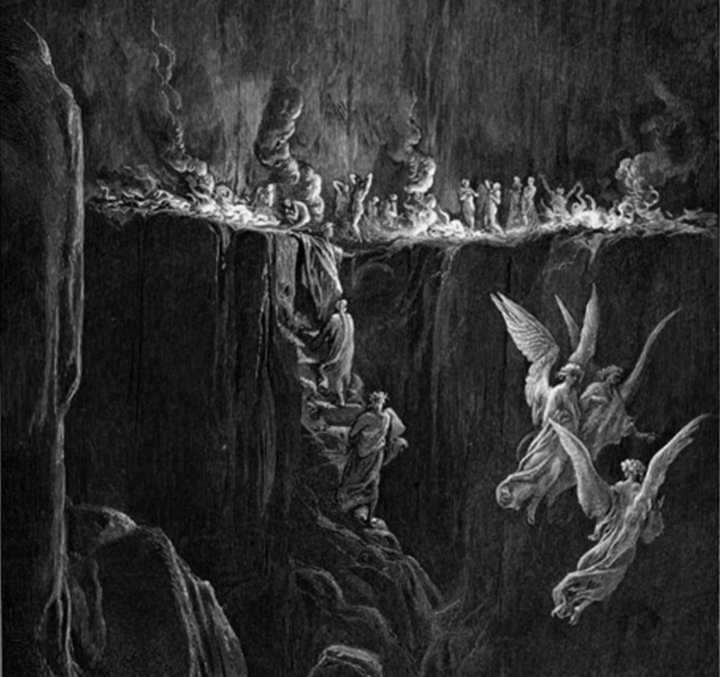
This is the punishment of the Lustful - whose burning desires in life must themselves be burnt away.
In order to pass, Dante must walk through the fire to burn away any sinful craving. The thought of such pain terrifies him, but Virgil reassures him that “yes, it will hurt, but you’ll survive”.
More importantly, Virgil reminds him of Beatrice, who awaits Dante on the other side. And with that Dante braces himself, and steps into the fire.
The Earthly Paradise
Dante has purged himself of all sins and arrives at the top of the mountain - The Garden of Earthly Paradise. This garden mirror the Garden of Eden.
Matilda
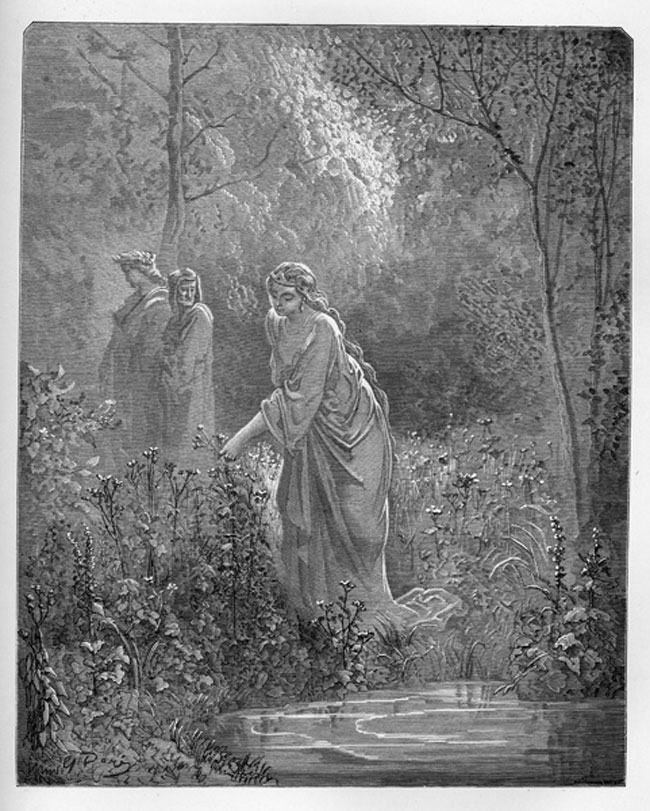
Here he meets Matilda a mysterious women who guides them through the garden.
The Grand Procession
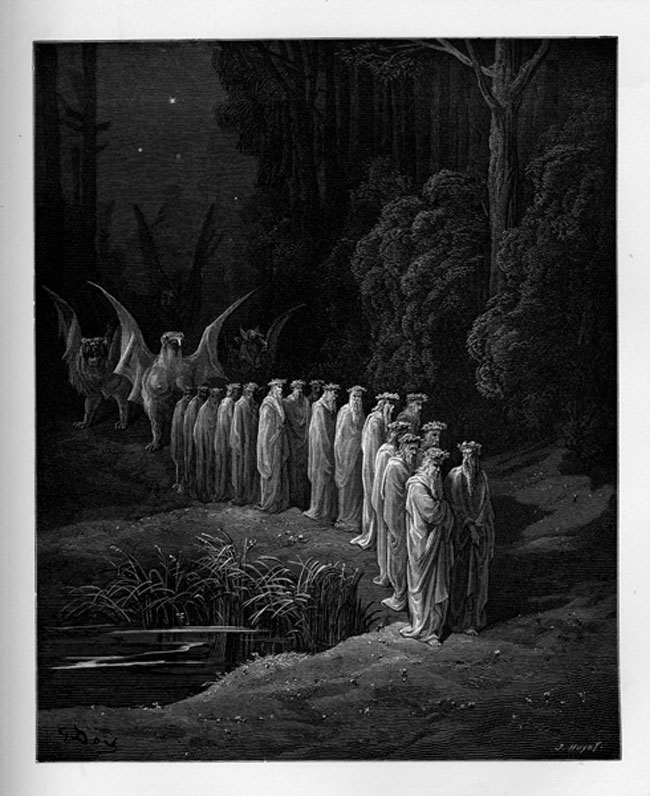
Dante then witnesses The Grand Procession - basically a big parade of Christian myth and the Triumph of Christ. Lots of characters from the Bible are here, like the seven candelabra (seven gifts of the Holy Spirit), twenty-four elders (books of the Old Testament), and the four living creatures (the four Gospels).
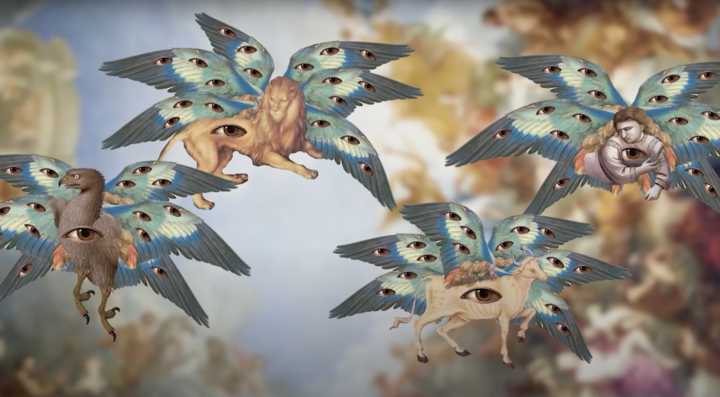
These four creatures, by the way, from the book of revelations are divine beings who will one day initiate the end of the world.
This spectacle is basically to prepare Dante for the higher realities of paradise.
Beatrice
After the strange procession ends, Dante finally sees Beatrice, glowing in a spectral white light.
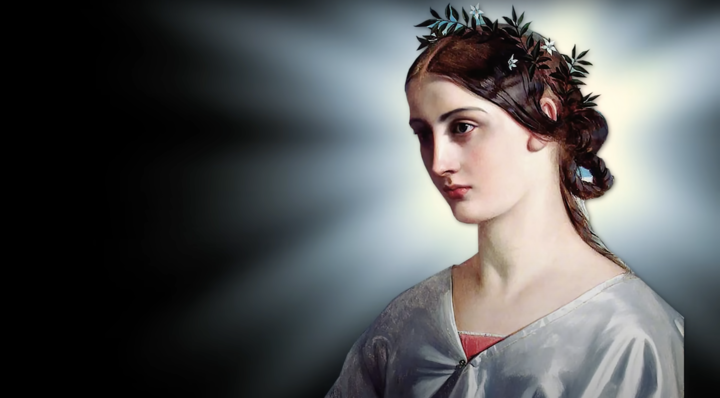
Beatrice is not pleased with Dante, however. She reminds him of all of his sins and wrongdoings and demands he explains himself.
Virgil and Statius conveniently leave at this point in the story, never to be seen again. This is because reason can only get you so far - and faith must take you the rest of the way.
Dante weeps and confesses his sins. She is satisfied - he has passed the final test.
Matilda now baptizes him in the River Lethe to remove all memory of sin. She also has him drink from the River Eunoe which restores only his memory of good deeds. He is now ready to ascend.
Beatrice takes his hand and they fly up to heaven. This ends Dantes journey through Purgatory - and begins the last act of the Divine Comedy - Dante’s Paradiso.
Recap
Purgatorio is often overlooked for it’s darker and more famous predecessor, Inferno. However, it is just as captivating for it’s moral gray area. Good and evil blend here, as sinners suffer so that that may be redeemed.
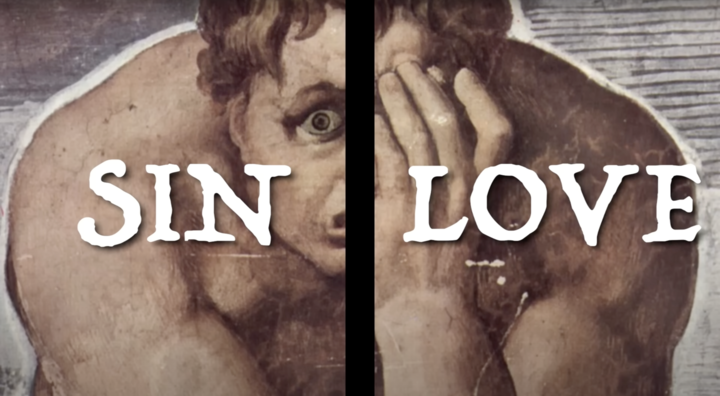
A key theme in Purgatorio is the relationship between sin and love.
Virgil explains to Dante that all sins actually stem from love, just that the love has been distorted.
For example, Pride is a twisted love of oneself - and Envy as a corrupted love of others.
Purgatory’s purpose then is to correct these distortions of love, guiding souls to atone for their sins and learn how to love truly.
In doing so, they will naturally return to heaven.
